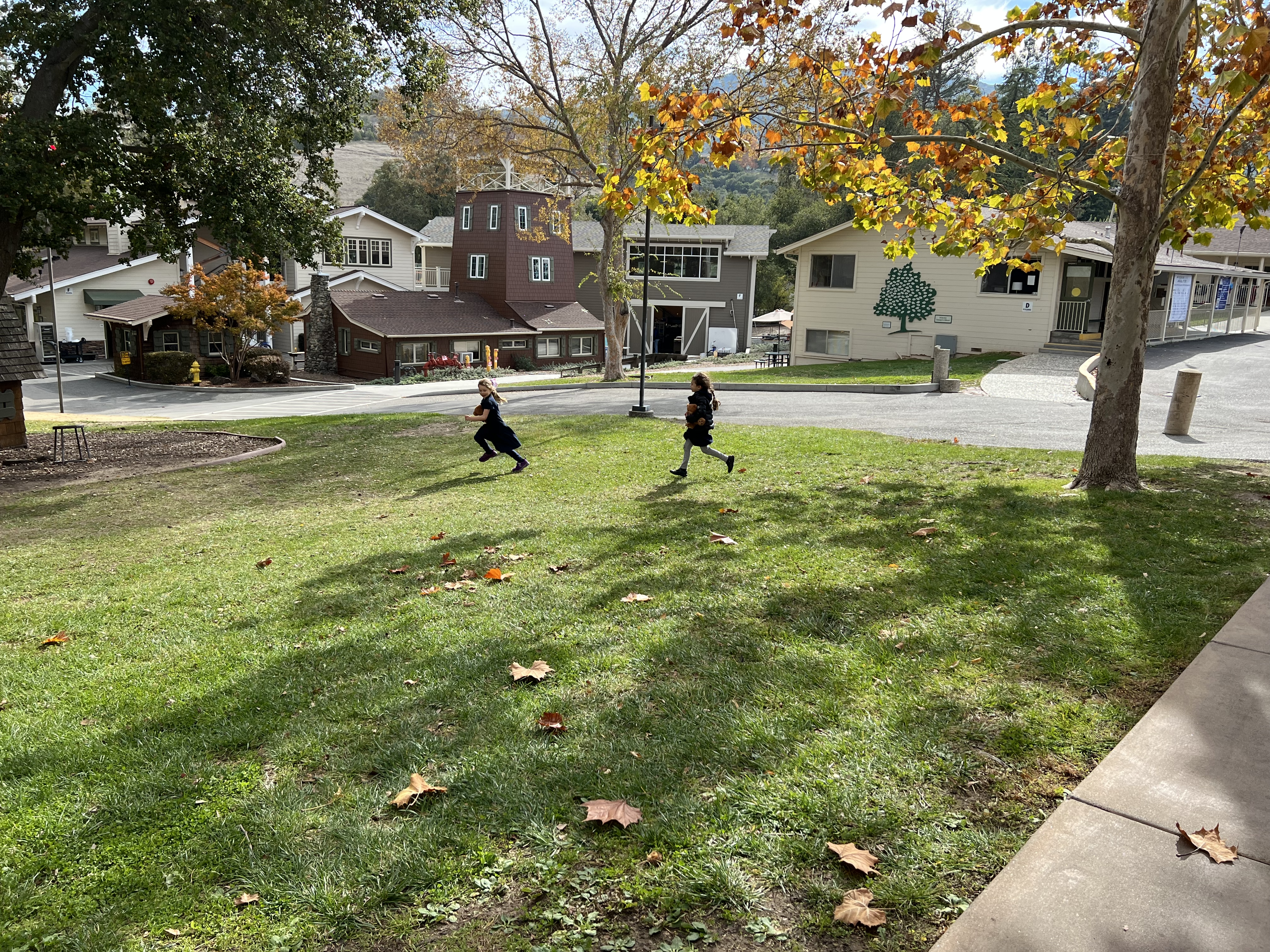By Matt Callahan, Middle School English Teacher, Dr. Ashley David, Middle School Humanities Teacher, and Andrea Holck, MS English Teacher

One of the reasons teaching at Hillbrook is an exciting and refreshing experience is the ability to walk into a sixth grade English class and see students arranged in two concentric circles, speaking directly to each other without raising hands, and saying things like, “humans are social creatures; our social life is vital to being human” or “learning is really a social thing.”
These students have spent the last three weeks exploring what it means to learn in community through a profound examination of short stories, outlining our class values, and discussing the “big ideas” found in our texts. This discussion based activity is called a Socratic Seminar. It combines many goals for this unit: analyzing the form and content of the short story, encouraging active listening and thoughtful response, and underlining the process of learning through social interaction.
What is Socratic Seminar?
As you read above, the seminars provide a place for students to discuss the big ideas found in a piece of art (a film, a text, etc.). They emphasize dialogue rather than debate, and ask students to give equal weight to each idea offered to the circle. Students speak clearly, listen closely, and find a graceful way into the conversation. We begin with a carefully devised “opening question” that does not have a single right answer. Ultimately, our goal is to come to an expanded understanding of a concept through dialoguing with one another. Participants add to the collective understanding of the idea, by adding their unique perspectives.
Here’s what it looks like in practice.
To take one example from the past weeks, we read Isaac Asimov’s The Fun They Had. This story takes place in the near future, where all schooling happens at home, in front of television-like terminals. Students were asked, “how is education portrayed in the book?” This question is intentionally open-ended, and requires an understanding of the story that surpasses mere comprehension. Students are immediately drawn into the world of ideas, one that is accessible to all students, regardless of reading level or writing ability. Students are asked, by the leaders and the other participants, to ground their ideas not only in personal experience or interpretation, but more importantly, in the text at hand.
 In seventh grade, students have been using Socratic Seminar to explore how complex ideas about ecology and the environment are presented in written works across time and genres. We’ve explored how the poetry of William Wordsworth investigates the nuanced differences between Truth and Knowing; how environment shapes culture in the speculative fiction novel, House of the Scorpion. As they dialogue and try on different ideas, students consistently ask each other, how do you know? As time goes by, students are becoming more aware of how they can use evidence to strengthen and support their evolving ideas.
In seventh grade, students have been using Socratic Seminar to explore how complex ideas about ecology and the environment are presented in written works across time and genres. We’ve explored how the poetry of William Wordsworth investigates the nuanced differences between Truth and Knowing; how environment shapes culture in the speculative fiction novel, House of the Scorpion. As they dialogue and try on different ideas, students consistently ask each other, how do you know? As time goes by, students are becoming more aware of how they can use evidence to strengthen and support their evolving ideas.
Eventually, the structure of the Socratic Seminar may be used to teach arts-based analytical writing. Eighth graders, for example, may use Socratic Seminar to practice divergent and convergent thinking about a single line of text and the broad range of meanings it may take on in different contexts, both within and outside the bounds of the novel, poem or short story. In time, students learn to try out ideas, question what they know, find evidence for their understandings and interpretations in the text, and most importantly, to answer the “so what?” question that often plagues young writers. Perhaps, however, the most important thing the students learn and practice, is the ability to listen closely to their peers, and to “try on” ideas that come from another perspective.
As a school, we believe in helping students find and share their unique voice. Through engaging and collaborative classroom experiences like Socratic Seminar in middle school, our students find a way to share and work together in a safe and dynamic space.
